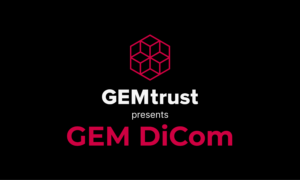Digital investments are growing fast! From cryptocurrencies like Bitcoin and Ethereum to digital items like NFTs, more people and companies are diving into this new world. But with this growth comes a big question: how do we keep these digital investments safe? That’s where Digital Asset Custody Solutions come in.
In simple terms, these custody solutions are like safes for digital assets, protecting them from hacks, theft, and other online dangers. Whether you’re just starting with digital investments or you’re a business holding large amounts, understanding digital asset custody is key to keeping your money safe.
What Are Digital Assets?
Before talking about custody, let’s get clear on what digital assets are. Digital assets are valuable things that only exist online. These include:
Cryptocurrencies: Like Bitcoin and Ethereum, which are digital currencies.
Non-Fungible Tokens (NFTs): Unique digital items, like art or collectibles, that can be bought and sold.
Tokenized Securities: Digital versions of things like stocks or real estate.
Digital Contracts: Contracts on the blockchain that make transactions easier and more secure.
All digital assets need protection to keep them from being lost or stolen.
Why Digital Asset Security Matters
Just like cash or jewelry, digital assets are valuable and can be targeted by thieves. However, protecting digital assets is different. In the digital world, assets are stored in “wallets” that interact with the blockchain and keep your assets safe. But because these wallets are online, they can be hacked, making secure custody solutions necessary.
What Are Digital Asset Custody Solutions?
Digital asset custody solutions are services or tools that securely store and manage digital assets for you. These solutions can be provided by specialized companies or set up by big institutions to help prevent unauthorized access.
There are two main types of digital asset custody:
Hot Storage: Online storage that makes accessing assets quick and easy, often used for assets you need access to right away. However, it’s more vulnerable to attacks.
Cold Storage: Offline storage, like hardware wallets, which are more secure and are typically used for long-term holdings.
Important Parts of Digital Asset Custody Solutions
Good digital custody solutions often include:
Security Protocols: Strong protection to keep out hackers.
Private Key Management: A private key is like a password to your digital assets, and custody solutions store these safely.
Multi-Signature Technology: This means that multiple people need to approve a transaction, adding an extra layer of security.
Recovery Options: In case you lose access, custody solutions often have ways to help you recover your assets.
With these features, custody solutions make it hard for hackers to access your investments.
Types of Digital Asset Custody Providers
There are different types of providers for digital custody:
Traditional Banks: Some banks now offer custody services, providing security and trust.
Cryptocurrency Exchanges: Many crypto exchanges like Coinbase and Binance offer both hot and cold storage options.
Specialized Custodians: Companies like Anchorage and BitGo focus solely on digital asset custody and offer advanced security.
Self-Custody Solutions: If you prefer not to use a third-party service, you can use tools like hardware wallets, though this requires knowing a bit about digital security.
Benefits of Using Digital Asset Custody Solutions
Better Security: Custody solutions often provide safer storage with encryption, private key management, and multi-signature protection.
Convenience: Managing digital assets becomes easier, letting you focus on investing rather than security.
Compliance: Some custody providers follow regulations, which is helpful for companies needing secure storage.
Peace of Mind: Knowing that your assets are safe allows you to focus on growing your investments.
Challenges with Digital Asset Custody
Despite the benefits, custody solutions have challenges:
Regulation: Digital assets are still new, and regulations are changing quickly. Custody providers have to keep up.
Trust: Some people prefer managing their own assets rather than trusting third parties, though self-custody can be challenging.
Cost: Custody services can be costly, and small investors may not find it worth the price.
The Future of Digital Asset Custody
As digital investments keep growing, custody solutions will likely become even more important. Providers are working on new technologies to make storage safer, and more traditional banks may offer custody services as regulations become clearer. This could help make digital assets safer and easier to access for everyone.
How to Choose a Digital Asset Custody Solution
Picking a custody solution depends on your needs, risk tolerance, and budget. Here are some tips:
Look for Strong Security: If safety is most important, find a provider with encryption, multi-signature, and cold storage options.
Check Compliance: Go with a provider that follows regulations in your country or region.
Consider Access Needs: If you need quick access, choose hot storage. For long-term holding, cold storage is often better.
Compare Costs: Look at fees and services to make sure you’re getting good value.
Conclusion
Digital asset custody solutions are changing the way we protect digital investments. For anyone looking to invest in digital assets, knowing how to find a reliable custody solution is key to protecting your future. By choosing a trusted custody provider, you can join the world of digital investments with confidence, knowing your assets are safe.



































